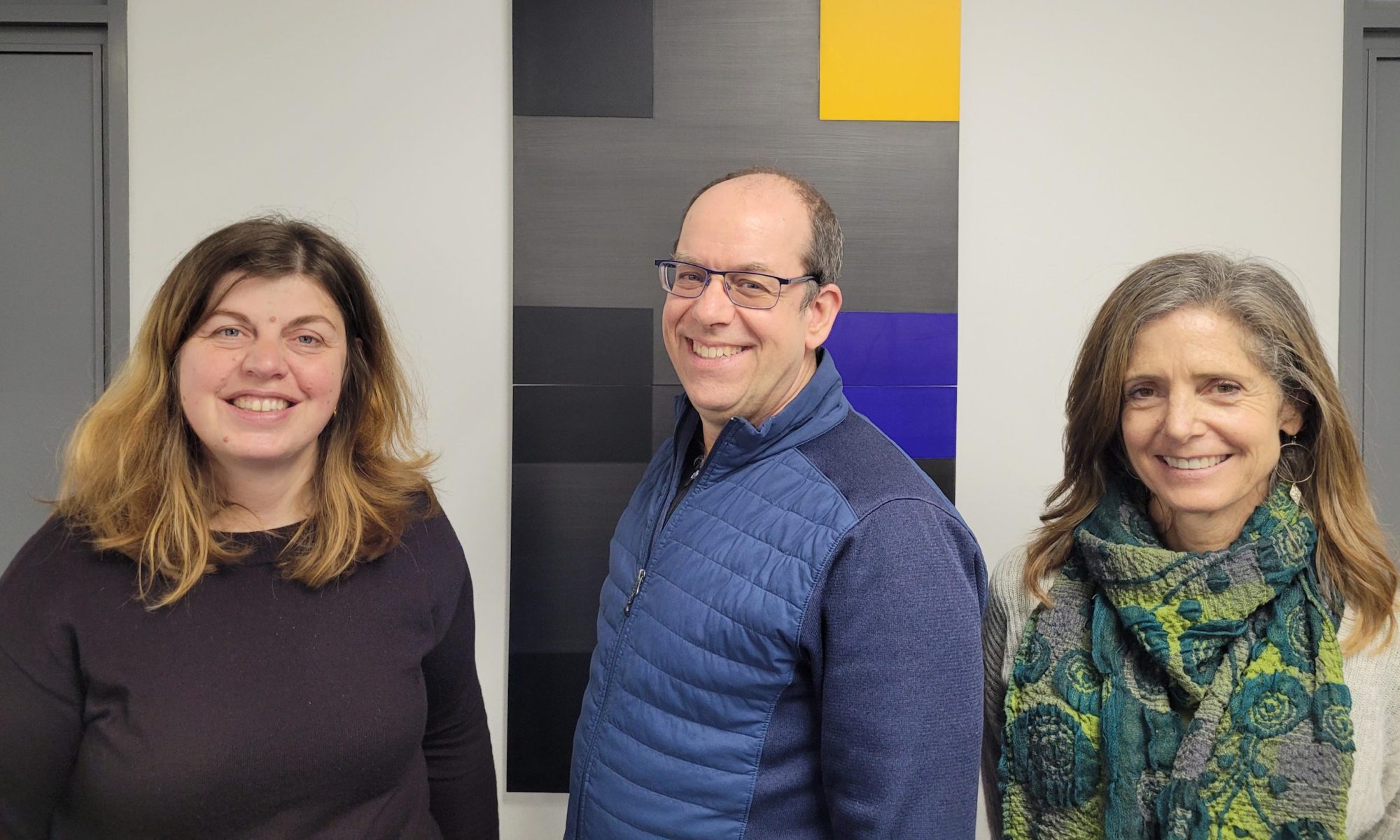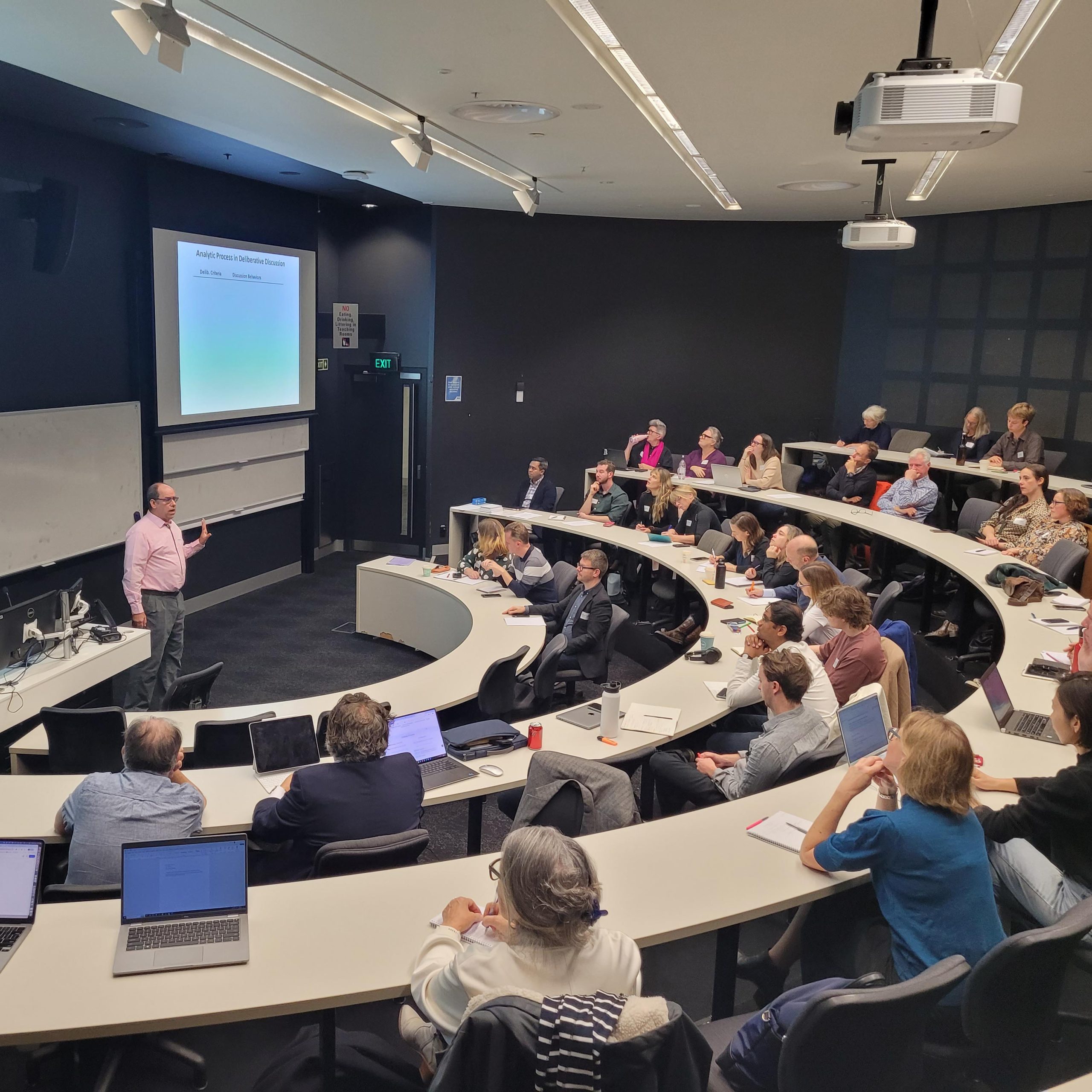
Reinventing and reinvigorating democracy for the 21st century.
The rise of authoritarianism, populism, and extremism threatens to erode the values of democracy and the norms of political decency. The influence of vested interests in politics weakens the voice of ordinary citizens and prevents action on urgent policy issues such as climate change. This is happening as political parties and other types of organisations (e.g. trade unions) that traditionally amplified the citizens’ voices are losing membership. Meanwhile, the decline of traditional media, the rise of social media and other technological developments – in particular are rapidly altering the information environment, dismantling the shared social system for ascertaining and agreeing on truth.
There is a pressing need for creative and transdisciplinary thinking about the future of democracy. Our team at Koi Tū has been working for several years with academic, government and community partners to create and test spaces, practices and conditions conducive to a thriving democracy. In June this year, in collaboration with the colleagues in the Faculty of Arts led by Associate Professor Matheson Russell, we convened a symposium titled Reinventing and reinvigorating democracy. Funded by the Faculty of Arts Major Research Grant on Collaborative Futures, the objective of this symposium was to bring together scholars, advocates and practitioners – many of whom we have worked with over the years – interested in democratic innovation to exchange knowledge, experiences and ideas.

The four keynotes/long lectures outlined the framework for the symposium. Professor John Gastil of the Penn State University, (pictured above centre with Dr Tatjana Buklijas (left) and Dr Anne Bardsley on the right) a leading scholar in the field of deliberative democracy whose visit to New Zealand was supported by a U.S. Embassy grant, opened the conference with a broad diagnosis of the problems of democracy today, and then an examination of the illustrative cases of deliberative democracy processes focusing in particular on the Citizens’ Initiative Review, pioneered in Oregon to help citizens understand ballot measures. Professor Nicole Curato of the University of Canberra expanded the perspective on democratic innovation beyond the West. She argued for a pluralistic approach that recognises the distinct democratic institutions and practices of the Global South and creates a dialogue between the Global North and Global South.
On the second day, Professor Dominic O’Sullivan (Te Rarawa, Ngati Kahu), political theorist from Charles Sturt University in Australia, addressed the distinctive democratic challenge in Aotearoa New Zealand. He criticised the “pervasive assumption” of the Crown as Pākehā, English-speaking and distinct from the Māori, and proposed replacing the principle of Crown/Māori partnership with the idea of the commonwealth, one that is equally constitutive of – equally owned by, and equally beneficial for – the Pākehā and Māori. His presentation was followed by comment by Professor Claire Charters of the University of Auckland. Finally, Associate Professor Emily Beausoleil, Victoria University of Wellington, reflected on the possibilities for democratic innovation in this country, deeply marked by its history of colonialism.
Beyond the keynotes, short talks in the afternoon explored the reception of democratic innovations attempted in Aotearoa New Zealand over the last three decades; the suitability of online spaces for democratic deliberation; the experiences of activists leading a grassroots citizens’ assembly on climate change in Porirua; and thoughts on democratic innovation at local level in the recent Future for Local Government review. On the second day, speakers looked at some of the key issues that remain to be resolved in the field of democratic innovation: ensuring inclusion; build institutions and practices for involvement with issues for which representative democracy has shown to be ineffective, in particular around climate change and environmental degradation; and counteracting the corrosive effects of economic inequality on democracy.
The symposium was meant to provide a space for exchange, learning and relationship-building among people interested in democratic innovation. In that, it was successful beyond expectations. Multiple new connections and collaborations have already emerged, and many will undoubtedly follow. One of the suggestions at the end was to make this meeting a regular occurrence, because a space for open and respectful discussion on democracy is sorely needed. These suggestions confirm the idea behind the Koi Tū Forum, as both a space and convenor for democratic conversations on complex and difficult issues, and a place of learning and research into the underlying concepts, methodologies and institutional arrangements.


